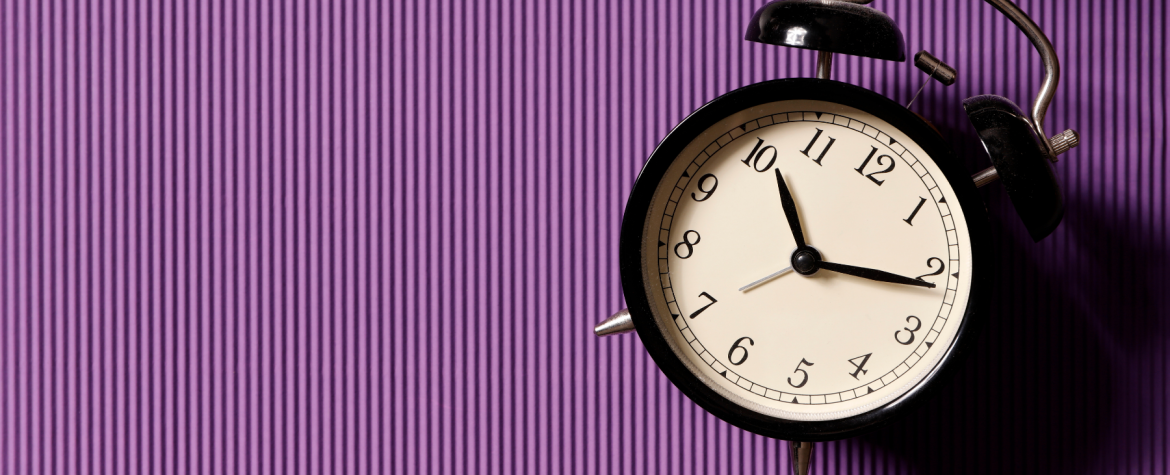Circadian Rhythm- Sleep-wake cycle. Light is information!
Everyone knows a morning person, someone with a lot of energy first thing in the morning. You may be reading this thinking, “I’m definitely not a morning person!”. Well, it turns out that every single one of us has our own, individual internal body clock known as our ‘Circadian Rhythm’. Want to improve your energy levels throughout the day and improve your sleep? Continue reading below!
WHAT IS THE CIRCADIAN RHYTHM?
A circadian rhythm is a natural internal process that operates on 24-hour cycles that are part of the body’s internal clock. The main regulator of our circadian rhythm is located in the hypothalamus in the brain, specifically, the suprachiasmatic nucleus (SCN). The SCN is connected to our optic nerves allowing the SCN nerves to send signals to the rest of the body in response to light or darkness. Our circadian rhythm helps govern many aspects of our biology such as our hormones, metabolism, and body temperature. One of the most important and well-known circadian rhythms is the sleep-wake cycle.
THE SLEEP-WAKE CYCLE
Unlike nocturnal animals, night shift workers and Batman, most humans are diurnal, meaning we tend to be awake during daylight and asleep during the night. If you follow a natural schedule of day and night, light signals received through your eyes is used as information to the SCN to send appropriate signals throughout the body.
Firstly, when we wake up and are exposed to light our bodies release a stress hormone called cortisol. This naturally peaks in the morning shortly after waking, which when you consider this in terms of hunter-gatherer times, has helped energise us to get up and search for food, helping us survive. In contrast to modern living, we still have the natural peak of cortisol, but now search for coffee instead!
During the later parts of the day, specifically when we are exposed to warmer light on the evening, the pineal gland releases a hormone known as melatonin, which does many things but is also related to helping us feel sleepy and promote sleep. When aligned to external light cues, the sleep-wake cycle works very well in promoting us feeling energetic throughout the day and sleepy during the later evening and night.
OUT OF SYNC
Sadly, in modern-day living there are many factors that can get our sleep-wake cycle out of sync. As a result, this can affect our sleep, energy levels, stress, and behaviours. Ever had jet lag? This is a prime example of when your sleep-wake cycle isn’t aligned with external environmental cues from light. Therefore, it takes a couple of days to realign your circadian rhythm to the new time zone/light cycles. It may sound obvious, but when its later evening/night we want to feel sleepy. What we do during these hours can either promote sleep, or delay sleep. Exposure to bright or blue light from our technological devices can suppress the release of melatonin, making it harder for us to fall asleep. A lack of sleep and good quality sleep is detrimental to our long-term health. So how do we optimise our sleep-wake cycle?
OPTIMISING THE SLEEP-WAKE CYCLE- LIGHT IS INFORMATION
Light is information! We can help align our circadian rhythm by getting more frequent exposure to light. Here are a few tips/practises to try for a couple of weeks and see how this affects your sleep and energy levels:
- Get 10-30 mins exposure to natural light shortly after waking up
o A good night’s sleep starts in the morning!
o This helps set your circadian rhythm.
o Try a morning walk, meditate outside, coffee in the garden. There’s more lux outside during an overcast dull day compared to artificial light inside! - Avoid coffee/caffeine for the first 30-60mins after waking.
o Allow cortisol to naturally wake you up and energise you in combination with natural daylight and avoid relying on stimulants first thing - Give your body more cues of the time of day
o Try get outside and exposure to natural light at multiple times of day if you can - Get 10-30 mins exposure to natural, warm light on an evening.
o This helps inform your brain/body it’s getting later in the day and puts the foot on the gas for releasing melatonin. - Avoid bright artificial light on an evening
o Use warm bulbs for lights on an evening and avoid overhead light. Use table or floor lamps, or even better- candle light! Who doesn’t love a candle!
o Avoid blue light from TV/phone 2 hours before sleep and change your phone to night mode to change the amount of blue light emitted from your device.
o Instead, go for a walk, read a book, meditate, write down a to-do-list or goals for tomorrow
Remember, light is information!
Author: Paul Rudd, Health and Wellbeing Coach at Trinity Health Group PCN

